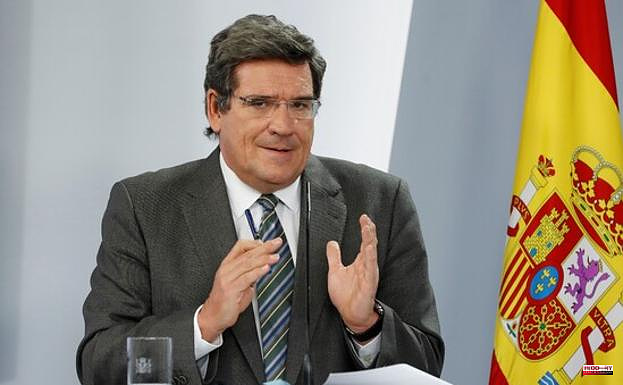Spain is not just the country's self-employed that don't contribute on the basis of their actual income. However, they are almost always mentioned. This is especially true now that the negotiations for the new model are in their final stages. It is possible to say that almost one in four workers doesn't pay Social Security based upon their work income. This makes them close to five millions of the 20.2 million registered members. We must also include those with salaries over 50,000 euros as well as domestic workers.
In fact, the largest group is composed of self-employed people: more than 3 million. They can choose their contribution base. The majority of them, 85%, choose to pay the minimum fee, 294 euros per monthly if they're individuals and 377 euros for companies. The new model that Minister Jose Luis Escriva negotiated with the group should start to be applied from next year so that their contributions will be based on net returns. Although the design should close this June, it seems like the future is still far away.
There is another group, however, made up of workers who make the most and contribute the maximum base, which stands at 4,139.4 euro. This limit Podemos wants eliminated and was voted for by the PSOE in Congress this week. . This is for those with an annual income greater than 49,672 euro. That is the maximum amount Social Security has to pay in 2022. Currently, no one who earns more than this amount is eligible for Social Security.
1.5 million people are included in the maximum base of 4,139 euros per person
imminent reform. In the next few years, the Government will gradually increase the maximum base to approximately 25%
The Ministry of Social Security does not provide data about the maximum base of affiliates, but they did offer the AIReF in 2018 the calculation that would give an estimate of 1.5 million workers. This figure is consistent with the estimate from the INE Salary Structure Survey, which shows that 1.4million employed people earn more than 50,000 Euros. CC OO speaks of between 1.1 million and 1.2million who contribute to the maximum quota for the year. This could increase to 1.5 million if they include those who contributed for at least one month.
The system does not pay the nearly 380,000 domestic workers who are currently registered, they contribute based upon their real income. Instead, they are paid based on the rate base. This is a series that has been updated in recent years and is very close to what they earn. Carlos Bravo, the confederal secretary for Social Protection and Public Policies at CC OO, said. Bravo says that there is a high proportion of illegal activity in the sector and that this must be addressed. Despite only 378,000 domestic workers being registered, nearly 550,000 are included in the Active Population Survey (EPA). This means that 165,000 people are working irregularly. The Government launched a campaign to combat fraud in this sector, which has already resulted in the regularization of thousands or even thousands of workers.
The Executive's goal is to see the contributions of these five millions affiliates become closer to their income. This Monday, the Ministry of Inclusion will host a meeting with social agents to discuss the new self-employment contribution system. It will be in force in 2023. However, the CEOE has rejected the previous proposal of 13 sections that included quotas ranging from 250 to 550 euros.
Escriva plans to also agree to before the end the year a "moderate rise in maximum contribution bases", which would then lead to an increase in maximum pension in the same percentage. He wants to gradually increase it by 25% every 25 years, to reach 60,000 Euros per year.












